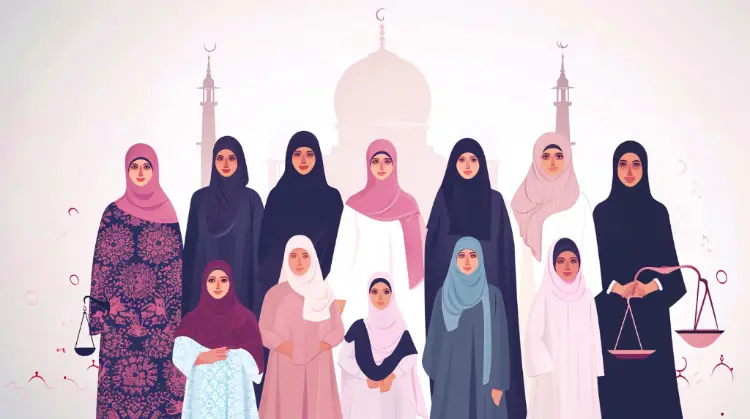journalofserviceclimatology.org – The role of women in Islam is a topic that has been widely discussed and debated, often leading to misconceptions and stereotypes. It is essential to explore the teachings of Islam regarding women’s status, rights, and roles to understand the true essence of their place in Islamic societies. This article aims to shed light on these aspects, drawing from Islamic teachings and historical perspectives.
The Status of Women in Islam
Islam recognizes the fundamental equality of men and women, emphasizing that both are created from a single soul. The Quran, the holy book of Islam, states, “O mankind, fear your Lord, who created you from one soul and created from it its mate and dispersed from both of them many men and women” (Quran 4:1). This verse underscores the equal worth and dignity of men and women in the eyes of God.
Rights of Women in Islam
Islam has granted women a wide range of rights, some of which were revolutionary at the time of their revelation. These include:
Right to Education
Islam encourages the pursuit of knowledge for both men and women. The Prophet Muhammad (peace be upon him) said, “Seeking knowledge is a mandate for every Muslim [male and female].” This emphasizes the importance of education for women in Islam.
Right to Inheritance
Islamic law (Sharia) grants women the right to inheritance, which was a significant advancement at the time. The Quran specifies shares of inheritance for daughters, wives, and sisters, ensuring they are provided for.
Right to Work
Women in Islam have the right to work and engage in economic activities. The Prophet’s first wife, Khadija, was a successful businesswoman, setting a precedent for women’s participation in the workforce.
Right to Own Property
Islamic law allows women to own and manage property independently. This autonomy is a testament to the trust and respect Islam places in women’s capabilities.
Roles of Women in Islam
The roles of women in Islam are diverse and multifaceted, reflecting the dynamic nature of their contributions to society.
As Mothers and Caregivers
Islam honors the role of mothers, considering it one of the highest positions. The Prophet Muhammad (peace be upon him) said, “Paradise lies at the feet of the mother.” This highlights the importance of the maternal role in Islam.
As Educators
Historically, women in Islamic societies have been educators, scholars, and transmitters of knowledge. Numerous female scholars have contributed to various fields, including Hadith, Fiqh (Islamic jurisprudence), and Sufism.
As Leaders
Islamic history includes examples of women who held leadership positions, such as military leaders and governors. This demonstrates that leadership roles are not restricted to men in Islam.
Conclusion
The role of women in Islam is characterized by a balance of rights, responsibilities, and respect. While cultural practices and interpretations may vary, the core teachings of Islam uphold the dignity and equality of women. Understanding the true status of women in Islam requires a nuanced look beyond stereotypes and misconceptions, recognizing the diverse and significant contributions of women to Islamic societies.
